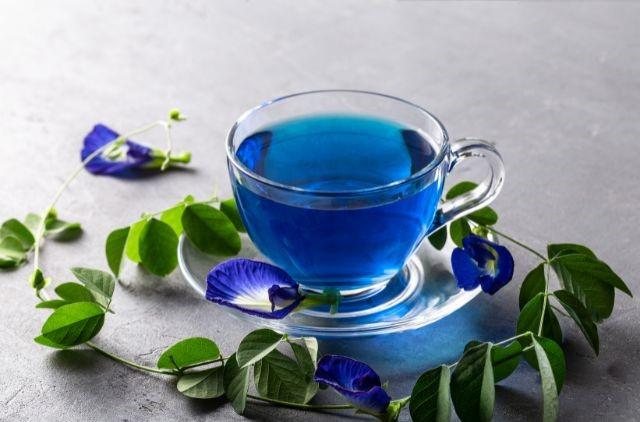Best Time to Drink Detox Tea for Weight Loss
This post may contain affiliate links which means I may receive a commission for purchases made through links at no extra cost to you. See my disclosure policy for more information.

Are you wondering about when to drink detox tea for weight loss? Dont worry I’ll get this sorted out for you.
Being a fitness professional I have met with many people who try out different types of detox tea hoping to get them closer to their weight loss goals. And as with any food or drink, the timing plays an important role.
So let’s get straight to the point by answering your question.
What is the best time to drink moringa tea for weight loss?
The best time to drink detox tea for weight loss would be about 30 minutes before your main meals.
This can potentially help with appetite suppression due to the sensation of fullness the tea might provide, allowing you to consume fewer calories during the meal.
Additionally, if your detox tea contains ingredients like green tea, which has caffeine, consider having it in the morning or early afternoon to avoid any potential sleep disturbances.
Also read: Best Time to Drink Moringa Tea for Weight Loss
Optimal Times for Drinking Detox Tea for Weight Loss
Morning Consumption
Starting your day with a cup of detox tea can be a refreshing alternative to your regular morning beverages.
Ingredients commonly found in detox teas, such as green tea, contain caffeine, which can provide a gentle energy boost without the jitters some people experience from coffee.
Also, some ingredients in detox teas are believed to support digestive health, which can be beneficial after a night’s rest when your digestive system is ready to kick into gear.
Before Meals
Drinking your detox tea before you eat any meal can help fill up your stomach, leading to a sensation of fullness.
This might help you eat a bit less during your meal. Moreover, certain ingredients in detox teas, like dandelion root, are thought to support the digestive system.
By consuming it before a meal, you’re prepping your digestive tract to efficiently process the nutrients you’re about to consume.
Before Workouts
Need a little pep in your step before hitting the treadmill? Detox tea might be your go-to. Some detox teas contain caffeine, naturally sourced from ingredients like green tea.
Caffeine is known to enhance alertness and can provide that extra push you might need for your workout.
Plus, some research suggests that caffeine can help increase fat oxidation during exercise, which means your body might use more fat as fuel during your workout.
Evening Consumption
The evening is a time for relaxation and winding down. Many detox teas contain ingredients like chamomile or peppermint, which are known for their calming properties.
Drinking detox tea in the evening can be a soothing ritual, helping you relax after a long day.
Additionally, some ingredients in detox teas are believed to aid digestion, which can be beneficial if you’ve had a particularly hearty dinner.
Also read: Best Time to Drink Hibiscus Tea for Weight Loss
Factors to Consider When Choosing a Detox Tea Time
Individual Body Rhythms
Our body operates on a roughly 24-hour cycle known as the circadian rhythm, regulated by the hypothalamus in the brain.
This rhythm affects hormone production, body temperature, and metabolism.
For instance, cortisol, a hormone related to alertness, has a peak secretion in the early morning.
Consuming stimulants like caffeine from detox teas during peak cortisol times might lead to overstimulation for some individuals.
Dietary Habits and Meal Timings
When you consume food, your stomach produces gastric acid to help break down and digest that food.
Drinking tea immediately after eating might dilute these acids, potentially slowing the digestive process.
On the flip side, certain compounds in tea, like tannins, can react with the stomach’s acid when empty, leading to nausea or discomfort for some individuals.
Sleep Patterns and Quality of Sleep
Adenosine is a neurotransmitter that accumulates in the brain during wakefulness and decreases during sleep. It promotes relaxation and sleepiness.
Caffeine, found in many detox teas, is an adenosine receptor antagonist. This means it blocks the action of adenosine, leading to increased alertness and wakefulness.
This is why consuming caffeine close to bedtime can disrupt sleep patterns for some individuals.
Personal Weight Loss Goals and Workout Routines
Caffeine has been shown to increase epinephrine (adrenaline) levels in the blood.
This hormone prepares the body for physical exertion by increasing blood flow to muscles, output of the heart, and releasing energy stores.
Furthermore, caffeine can enhance the body’s ability to break down body fat, making free fatty acids available for energy. This process, known as lipolysis, can be beneficial during workouts.
Specific Ingredients in the Detox Tea
Different ingredients in detox teas have various mechanisms of action. For instance:
Dandelion Root: It’s believed to have a diuretic effect, increasing urine production. This can help eliminate excess fluid from the body.
Milk Thistle: It contains silymarin, which is suggested to have antioxidant and anti-inflammatory properties. It might support liver function by preventing the depletion of glutathione, a vital antioxidant in the liver.
Chamomile: Contains antioxidants that may promote sleepiness and reduce insomnia. It does this by binding to specific receptors in the brain that may decrease anxiety and initiate sleep.
Sensitivity to Ingredients
Everyone’s body is unique, and our genetic makeup can influence how we metabolize and react to different compounds.
Some individuals might have a genetic predisposition that makes them more sensitive to certain herbs or compounds in detox teas.
Additionally, certain compounds in teas can interact with enzymes in the liver responsible for drug metabolism, potentially affecting the efficacy of medications.
Also read: Best Time to Drink Matcha Tea for Weight Loss
Potential Risks and Precautions of Drinking Detox Tea for Weight Loss
Unrealistic Expectations
Many detox teas are marketed with claims of rapid weight loss and instant detoxification. While some ingredients can aid metabolism and digestion, detox teas aren’t magic solutions.
True weight loss and detoxification are multifaceted processes influenced by various lifestyle factors.
Approach detox teas as a supplement, not a primary solution.
Sustainable health improvements come from a holistic approach, including diet, exercise, and sleep. Be cautious of products with “too good to be true” promises.
Overconsumption
Just like anything, consuming detox teas in excessive amounts can lead to potential side effects. For instance, many detox teas contain caffeine (from ingredients like green tea).
Overconsumption can lead to caffeine toxicity, which can cause symptoms like jitters, increased heart rate, and digestive disturbances.
Stick to the recommended serving size, usually one to three cups per day, and monitor your overall caffeine intake from other sources.
Diuretic Effects
Some ingredients in detox teas, like dandelion root, have diuretic properties. This means they can increase urine production.
While this might seem beneficial for “detoxing,” it can lead to dehydration and an imbalance of electrolytes in the body.
Ensure you’re drinking plenty of water throughout the day to stay hydrated. If you notice increased urination, consider reducing your intake of the tea.
Interactions with Medications
Certain compounds in detox teas can interact with medications.
For example, St. John’s Wort, sometimes found in detox teas, can interfere with the effectiveness of birth control pills, antidepressants, and other medications.
Always consult with a healthcare professional before starting any detox tea, especially if you’re on medication. Provide them with a full ingredient list of the tea you’re considering.
Potential Allergens
Detox teas are a blend of various herbs and plants. Some individuals might be allergic or sensitive to specific ingredients, leading to reactions ranging from mild rashes to severe allergic responses.
If you’re aware of any plant or herb allergies, check the ingredient list thoroughly. Start with a small amount to see how your body reacts before making it a regular part of your routine.
Laxative Effects
Some detox teas contain ingredients like senna, which has a laxative effect.
While this might give the impression of “cleansing,” frequent bowel movements can lead to dehydration, disrupt the natural balance of gut bacteria, and cause nutrient deficiencies.
Be wary of teas that promote “immediate cleansing” or similar claims. If you experience frequent or severe diarrhea, stop consumption and consult a healthcare professional.
Also read: Best Time to Drink Kombucha for Weight Loss
Conclusion
So there you have it, the best time to drink your detox tea depends on your individual lifestyle, preferences, and workout routine.
If you would like to start your day with an energy boost, you can drink your detox tea in the morning.
Drink it 30 minutes before your meal to suppress your appetite, or as a pre-workout to boost your energy.
Overall what matters is that you combine it with a healthy lifestyle that includes a wholesome diet, being active physically, and getting adequate sleep.
FAQ
Is it better to drink detox tea in the morning or at night?
It depends on the ingredients. For energy-boosting or caffeinated teas, morning is preferable. For calming teas, the night is better.
How many days a week should I drink detox tea?
It’s generally safe to drink detox tea daily, but always follow the product’s recommendations and listen to your body.
How fast does detox tea work?
Some effects, like increased energy or diuretic effects, can be felt within hours. However, long-term benefits, like weight loss, take more time and consistent use.
Should you drink water after detox tea?
Yes, staying hydrated is essential, especially if the detox tea has diuretic properties. Drinking water can help flush out toxins and support the detox process.
This post may contain affiliate links which means I may receive a commission for purchases made through links at no extra cost to you. See my disclosure policy for more information.
Rahul is a professional nutritionist certified by the International Sports Sciences Association (ISSA) and a personal trainer certified through the American Council of Exercise (ACE). He has a special interest in the science of nutrition and how it can impact the body.
